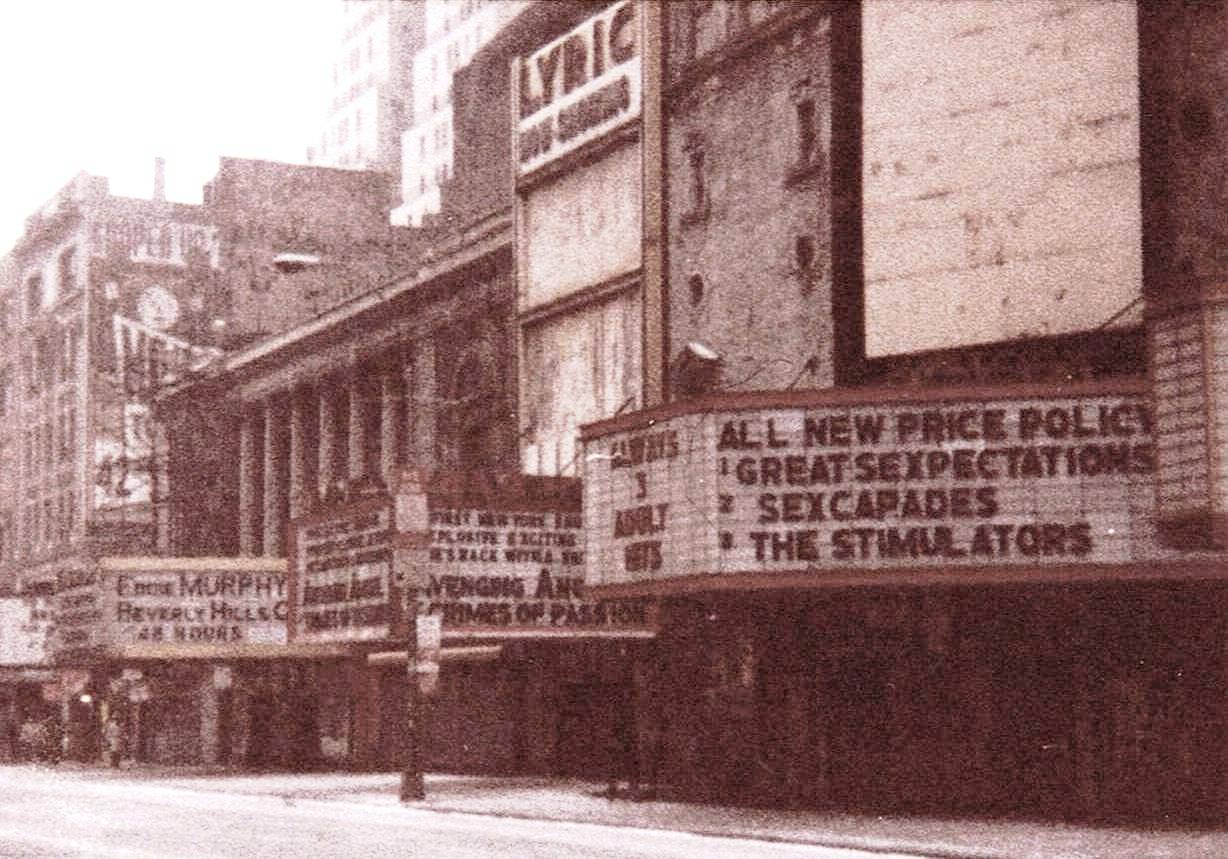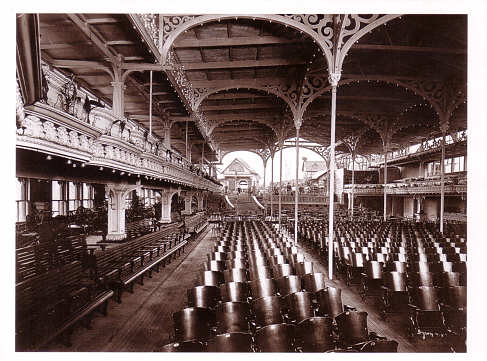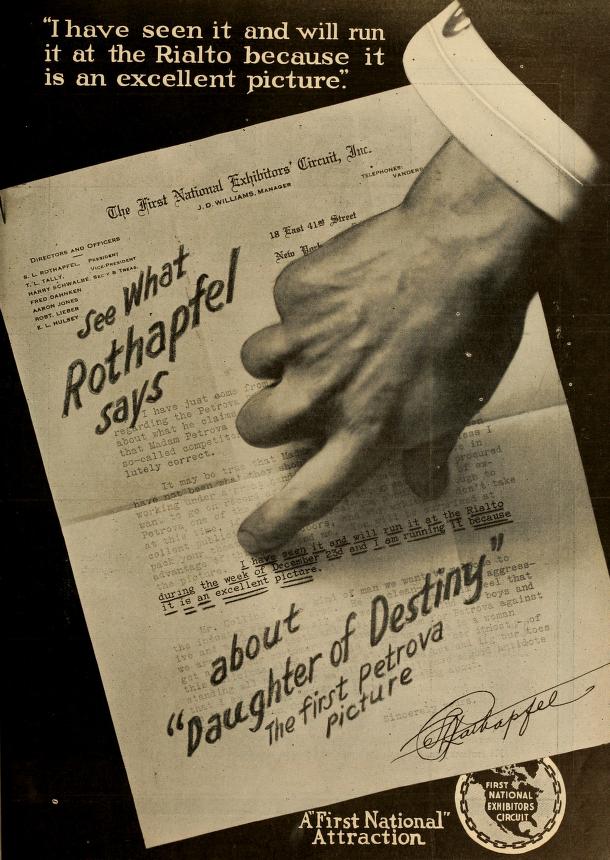|
Victoria Theater (Hammerstein's)
The Victoria Theatre (1899–1915) was a prominent American vaudeville house during the early years of the twentieth century. Theatre mogul Oscar Hammerstein I opened it in 1899 on the northwest corner of Seventh Avenue (Manhattan), Seventh Avenue and 42nd Street (Manhattan), 42nd Street, along New York City’s Longacre Square (now Times Square).“Hammerstein’s Victoria,” New York Times, 3 March 1899. The theatre was closely associated with Paradise Roof Garden, the Paradise Roof Garden above it, and the two venues came to be known collectively as ''Hammerstein’s''.“Rialto Theatre to Close Tonight,” New York Times, 15 May 1935, 23. Construction Undaunted by the failure of his massive Olympia Theatre (New York City), Olympia Theatre, Ha ...[...More Info...] [...Related Items...] OR: [Wikipedia] [Google] [Baidu] |
42nd Street (Manhattan)
42nd Street is a major crosstown street in the New York City borough of Manhattan, spanning the entire breadth of Midtown Manhattan, from Turtle Bay at the East River, to Hell's Kitchen at the Hudson River on the West Side. The street hosts some of New York's best known landmarks, including (from east to west) the headquarters of the United Nations, the Chrysler Building, Grand Central Terminal, the New York Public Library Main Branch, Times Square, and the Port Authority Bus Terminal. The street is known for its theaters, especially near the intersection with Broadway at Times Square, and as such is also the name of the region of the theater district (and, at times, the red-light district) near that intersection. History Early history During the American Revolutionary War, a cornfield near 42nd Street and Fifth Avenue was where General George Washington angrily attempted to rally his troops after the British landing at Kip's Bay, which scattered many of the Americ ... [...More Info...] [...Related Items...] OR: [Wikipedia] [Google] [Baidu] |
Willie Hammerstein
William Hammerstein (September 26, 1875 – June 10, 1914) was an American theater manager. He ran the Victoria Theatre on what became Times Square, Manhattan, presenting very popular vaudeville shows with a wide variety of acts. He was known for "freak acts", where celebrities or people notorious for scandals appeared on stage. Hammerstein's Victoria Theatre became the most successful in New York. Early years William Hammerstein was born in New York City on September 26, 1875,"New York, New York City Births, 1846-1909," database, FamilySearch (https://familysearch.org/ark:/61903/1:1:271S-4VN : accessed September 21, 2015), William Hamerstein, September 26, 1875; citing Birth, Manhattan, New York, New York, United States, New York Municipal Archives, New York; FHL microfilm 1,322,094. son of Oscar Hammerstein, the theater impresario, and his first wife, née Rose Blau. He started work as a press agent, then built a vaudeville theatre on 110th Street, Manhattan, called Little Co ... [...More Info...] [...Related Items...] OR: [Wikipedia] [Google] [Baidu] |
Event Venues Established In 1899
Event may refer to: Gatherings of people * Ceremony, an event of ritual significance, performed on a special occasion * Convention (meeting), a gathering of individuals engaged in some common interest * Event management, the organization of events * Festival, an event that celebrates some unique aspect of a community * Happening, a type of artistic performance * Media event, an event created for publicity * Party, a social, recreational or corporate events held * Sporting event, at which athletic competition takes place * Virtual event, a gathering of individuals within a virtual environment Science, technology, and mathematics * Event (computing), a software message indicating that something has happened, such as a keystroke or mouse click * Event (philosophy), an object in time, or an instantiation of a property in an object * Event (probability theory), a set of outcomes to which a probability is assigned * Event (relativity), a point in space at an instant in time, i.e. a lo ... [...More Info...] [...Related Items...] OR: [Wikipedia] [Google] [Baidu] |
Former Theatres In Manhattan
A former is an object, such as a template, gauge or cutting die, which is used to form something such as a boat's hull. Typically, a former gives shape to a structure that may have complex curvature. A former may become an integral part of the finished structure, as in an aircraft fuselage, or it may be removable, being using in the construction process and then discarded or re-used. Aircraft formers Formers are used in the construction of aircraft fuselage, of which a typical fuselage has a series from the nose to the empennage, typically perpendicular to the longitudinal axis of the aircraft. The primary purpose of formers is to establish the shape of the fuselage and reduce the column length of stringers to prevent instability. Formers are typically attached to longerons, which support the skin of the aircraft. The "former-and-longeron" technique (also called stations and stringers) was adopted from boat construction, and was typical of light aircraft built until the ad ... [...More Info...] [...Related Items...] OR: [Wikipedia] [Google] [Baidu] |
Vaudeville Theaters
Vaudeville (; ) is a theatrical genre of variety entertainment born in France at the end of the 19th century. A vaudeville was originally a comedy without psychological or moral intentions, based on a comical situation: a dramatic composition or light poetry, interspersed with songs or ballets. It became popular in the United States and Canada from the early 1880s until the early 1930s, but the idea of vaudeville's theatre changed radically from its French antecedent. In some ways analogous to music hall from Victorian Britain, a typical North American vaudeville performance was made up of a series of separate, unrelated acts grouped together on a common bill. Types of acts have included popular and classical musicians, singers, dancers, comedians, trained animals, magicians, ventriloquists, strongmen, female and male impersonators, acrobats, clowns, illustrated songs, jugglers, one-act plays or scenes from plays, athletes, lecturing celebrities, minstrels, and movies. A vaud ... [...More Info...] [...Related Items...] OR: [Wikipedia] [Google] [Baidu] |
Rialto Theatre (New York City)
The Rialto Theatre was a movie palace in New York City located at 1481 Broadway, at the northwest corner of Seventh Avenue and 42nd Street, within the Theater District of Manhattan. The 1,960-seat theater opened on April 21, 1916, on the former site of Oscar Hammerstein's Vaudeville venue the Victoria Theatre. Together with Strand Theatre, they were the most important movie theatres on Broadway at the time. It exclusively played Triangle Film Corporation films but beginning in 1919, the Rialto Theatre premiered many releases by Paramount Pictures (then known as the Famous Players-Lasky Corporation) until being supplanted by the newly built Paramount Theatre in 1926 as the movie studio's flagship theater in New York City. When Paramount sold the building in 1935, the Rialto Theatre was demolished and rebuilt on a smaller scale, with the rest of the building dedicated to shops and office space. By the 1970s, the theater had become an adult movie theater. In February 1980 ... [...More Info...] [...Related Items...] OR: [Wikipedia] [Google] [Baidu] |
Samuel Roxy Rothafel
Samuel Lionel "Roxy" Rothafel (July 9, 1882 – January 13, 1936) was an American theatrical impresario and entrepreneur. He is noted for developing the lavish presentation of silent films in the deluxe movie palace theaters of the 1910s and 1920s. Life and career Samuel Rothafel (originally Rothapfel, meaning ‘‘Red Apple’’, the modern German spelling is: Rotapfel) was born in Bromberg, Province of Posen, Prussia, Germany,(now Bydgoszcz, Poland), and is the son of Cecelia (née Schwerzens) and Gustav Rothapfel. In 1886, at the age of three, he and his mother boarded the S/S Rugia, sailing from Hamburg to the Port of New York on May 24, 1886.Samuel Rothapfel, New York Passenger and Crew Lists, S/S ''Rugia'', 24 May 1886 In that same year, Rothafel and his parents moved to Stillwater, Minnesota. In 1895 at the age of thirteen, Rothafel moved to New York with his family. He became estranged from his father when he lost interest in his studies and nearly two years after hi ... [...More Info...] [...Related Items...] OR: [Wikipedia] [Google] [Baidu] |
Seven Little Foys
''The Seven Little Foys'' is a Technicolor in VistaVision 1955 comedy film directed by Melville Shavelson starring Bob Hope as Eddie Foy. One highlight of the film is an energetic tabletop dance showdown sequence with Bob Hope as Eddie Foy and James Cagney as George M. Cohan (reprising his role from ''Yankee Doodle Dandy''). The story of Eddie Foy Sr. and the Seven Little Foys inspired a TV version in 1964 and a stage musical version, which premiered in 2007. Plot Vaudeville entertainer Eddie Foy (Bob Hope), who has vowed to forever keep his act a solo, falls in love with and marries Italian ballerina Madeleine (Milly Vitale). While they continue to tour the circuit, they begin a family and before long have seven children. After the tragedy of the Iroquois Theater Fire threatens to stall Eddie's career, he comes to realize that his children are worth their weight in gold. The second eldest Foy, Charley, narrates the film. James Cagney reprises his role as George M. Cohan from t ... [...More Info...] [...Related Items...] OR: [Wikipedia] [Google] [Baidu] |
Four Cohans
The Four Cohans was a late 19th-century vaudeville family act that introduced 20th-century Broadway legend George M. Cohan to show business. It consisted of father Jeremiah "Jere" Cohan (1848–1917), mother Helen "Nellie" Costigan Cohan (1854–1928), daughter Josephine "Josie" Cohan Niblo (1876–1916), and son George M. Cohan (1878–1942). By the late 1890s, when the team had become a successful and well-established act in the vaudeville circuits across the country, George Cohan started giving his famous curtain-call speech: " dies and gentlemen, my father thanks you, my mother thanks you, my sister thanks you, and I thank you". The act disbanded in 1900 when George left vaudeville for Broadway. Josie, who died of heart disease at a young age, was married to Fred Niblo Sr. (1874–1948), an important director of silent films, including '' Ben Hur'' (1925), and a founder of the Academy of Motion Picture Arts and Sciences. Their son, Fred Niblo Jr. (1903–1973) was an Academy ... [...More Info...] [...Related Items...] OR: [Wikipedia] [Google] [Baidu] |
Buster Keaton
Joseph Frank "Buster" Keaton (October 4, 1895 – February 1, 1966) was an American actor, comedian, and filmmaker. He is best known for his silent film work, in which his trademark was physical comedy accompanied by a stoic, deadpan expression that earned him the nickname "The Great Stone Face". Critic Roger Ebert wrote of Keaton's "extraordinary period from 1920 to 1929" when he "worked without interruption" as having made him "the greatest actor-director in the history of the movies". In 1996, ''Entertainment Weekly'' recognized Keaton as the seventh-greatest film director, and in 1999 the American Film Institute ranked him as the 21st-greatest male star of classic Hollywood cinema. Working with independent producer Joseph M. Schenck and filmmaker Edward F. Cline, Keaton made a series of successful two-reel comedies in the early 1920s, including ''One Week'' (1920), '' The Playhouse'' (1921), '' Cops'' (1922), and ''The Electric House'' (1922). He then moved to feature-leng ... [...More Info...] [...Related Items...] OR: [Wikipedia] [Google] [Baidu] |
Burletta
In theater and music history, a burletta (Italian, meaning "little joke", sometimes burla or burlettina) is a brief comic opera. In eighteenth-century Italy, a burletta was the comic intermezzo between the acts of an ''opera seria''. The extended work Pergolesi's ''La serva padrona'' was also designated a "burletta" at its London premiere in 1758. In England, the term began to be used, in contrast to burlesque, for works that satirized opera but did not employ musical parody. Burlettas in English began to appear in the 1760s, the earliest identified as such being ''Midas'' by Kane O'Hara, first performed privately in 1760 near Belfast, and produced at Covent Garden in 1764. The form became debased when the term ''burletta'' began to be used for English comic or ballad operas, as a way of evading the monopoly on "legitimate drama" in London belonging to Covent Garden and Drury Lane. After the passage of the Theatres Act of 1843, which repealed crucial regulations of the Licensing A ... [...More Info...] [...Related Items...] OR: [Wikipedia] [Google] [Baidu] |
Seventh Avenue (Manhattan)
Seventh Avenue – co-named Fashion Avenue in the Garment District, Manhattan, Garment District and known as Adam Clayton Powell Jr. Boulevard north of Central Park – is a thoroughfare on the West Side of the borough (New York City), borough of Manhattan in New York City. It is southbound below Central Park and a two-way street north of the park. Seventh Avenue originates in the West Village, Manhattan, West Village at Clarkson Street, where Varick Street becomes Seventh Avenue South (which becomes Seventh Avenue proper after the road crosses Greenwich Avenue and 11th Street (Manhattan), West 11th Street). It is interrupted by Central Park from 59th Street (Manhattan), 59th to 110th Street (Manhattan), 110th Street. Artisans' Gate is the 59th Street exit from Central Park to Seventh Avenue. North of Warriors' Gate at the north end of the Park, the avenue carries traffic in both directions through Harlem, where it is called Adam Clayton Powell Jr. Boulevard. Addresse ... [...More Info...] [...Related Items...] OR: [Wikipedia] [Google] [Baidu] |








